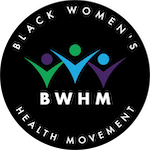March 4 is World Obesity Day
Showing Progress Even When No Ones Sees It But You
For many, obesity leaves us feeling tired and overwhelmed. We want to wake up with energy and feel attractive or at least be able to look in the mirror proudly loving the person we see. More importantly, we want to know we are healthy physically, mentally, and spiritually. We are not alone in how we feel. Many Americans have these same feelings. Many factors can influence your weight, including mental health, diet, exercise, hormone levels, body mass, genetics, age, and more.
Obesity rates, according to the World Health Organization, have steadily increased in recent years. As of 2016, there were nearly 650 million people with obesity in the world, and as of 2020, in the United States where the obesity crisis is most prevalent, the adult obesity rate is 42.4%. It’s an epidemic in America that unnecessarily puts people at risk of diabetes, cancer, and heart disease.
A more recent concern is that it’s been more than two years since COVID-19 began, which has likely increased obesity pervasiveness. Being sedentary leads to loss of muscle, slows the metabolism, and contributes to weight gain and obesity. Additionally, many are still spending more time at home overeating from pandemic-related stress and anxiety. While quarantining has helped some of us to lose weight, many of us have experienced an increase in anxiety and weight gain.
Carrying extra pounds is frustrating and depletes energy. It makes starting our day troublesome and often the long list of things we hope to accomplish in a day don’t happen because we simply don’t have the energy or desire to do them.
Understanding BMI
One way to quantify obesity is with Body Mass Index (BMI) ranges. People who are considered obese have a BMI count above 30, an overweight BMI range is from 25-29 and a normal BMI range is less than 25. According to the CDC, the average African American woman weighs approximately 187 pounds with a BMI of 32.2, and losing at least 20 pounds may reduce chronic health risk factors.
The report further indicates that African American women are 82% more likely to be overweight and obese than white women 63.2%. For Hispanic women, the rate is 77.2%. This is important to note because the rates of chronic disease, disability, and premature death among African American women run disproportionately high. In fact, research findings reveal that Black women compared to white women in the same weight-loss programs, lose less weight and maintain weight loss for a shorter time. For those reasons, we need to look beyond the BMI factors to improve the health of Black women.

Addressing Weight Gain
Combating obesity is complex and unique to each individual. For some, overeating isn’t the issue, and for others, a lack of exercise isn’t the problem. Still, others eat a balanced diet while continuing to gain weight.
Because obesity is a health issue, doctors prescribe medications to address it, which can bring on its own set of issues and cause some to avoid resolving the underlying issue. That’s why we recommend finding integrated health care treatment that helps address both the symptoms and core issues.
Where to Start
Your weight loss or weight gain is controlled by your metabolism. The thyroid located in the front of your neck is a small gland that releases hormones in your bloodstream to control your metabolism. It has been estimated that 40% of Americans suffer from thyroid dysfunction and 60% of those are unaware a problem exists. Your medical professional should check your hormone levels that gauge your metabolism. A healthy metabolism burns fat and calories efficiently and sends energy to your cells to keep you healthy.
Regular exercise with a well-rounded diet is critical to help you maintain a healthy weight. However, some medical practitioners believe diet and exercise may not be enough without considering your body type, and others believe your blood type (based on the continent of your ancestors) are genetic factors that influence weight.
According to the Institute of Integrative Nutrition, there are three main body types based on skeletal frame and body composition. Mostly impacted by genetics, they determine whether you’re leaner, heavier, or somewhere in between.
- Mesomorph: naturally muscular and strong with a generally high metabolism and low body fat percentage.
- Ectomorphs: typically, tall and lanky with long limbs and a naturally high metabolism — can eat more without worrying about weight gain.
- Endomorphs: tend to have a higher body fat percentage with a slower metabolism and a tendency to hold on to excess fat. According to the American Council on Exercise (ACE), people with an endomorph body type tend to be more sensitive to carbohydrates and insulin, typically carrying weight in their mid-section (hip, legs, butt and thighs). This does not mean that all people with endomorphic body types have unhealthy or overweight issues, but they may be more likely to have trouble maintaining a healthy lifestyle and weight without making appropriate adjustments.
Most people don’t neatly fit into just one category, but rather have a combination of the body type attributes. Research has also found that whatever your body or blood type, there are some foods and food groups that support weight management better than others. If you are having issues with weight loss and believe you may be an Endomorph body type, check out Endomorph diet: Eating, exercising, and muscle gain (MedicalNewsToday.com).
What Can You Do Now?
Start by speaking with your doctor to rule out medical reasons for your weight. Consider your personality traits and the possibility of habits that make exercise and dieting challenging. Are you dealing with anxiety or eating issues that cause you to gravitate toward finding comfort in food?
If you are overweight and answer yes to the questions below, it’s time to get help:
- Do you find it difficult to lose weight or has it become more difficult to lose weight as you age?
- Do you think a lot about losing weight?
- Does your weight keep you from feeling confident, energy and hope?
- Does your weight affect your overall health?
- Is it tough to do certain physical activities or sustain your energy through the day?
- Do you find that no matter how much you exercise and eat healthy foods you struggle to lose weight?
You are not alone. Your dream to live a longer, happier life is within your reach. The energy and self-love you seek are obtainable. There is an incredible journey ahead in your life if you take the time to seek advice, understand your medical indicators and risks; and find mental, physical, and spiritual support. Deal only with the facts when it comes to weight loss solutions, not fads and gimmicks.
Most of all, remember that small steps in your weight-loss journey are progress — even when no one else notices but you!
For further discussion about getting fit, preparing healthy meals, and exercising to maintain a healthy weight, check out the following:
Integrativenutrition.com/blog/endomorph-diet-explains
How to Reset Your Metabolism | Institute for Integrative Nutrition


